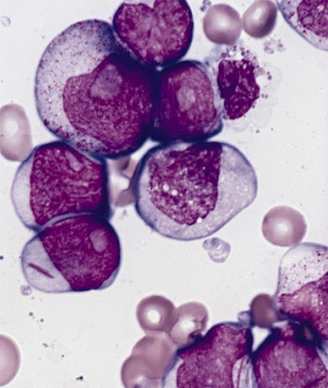Investigators Pause Trial for MGTA-117 in Relapsed/Refractory AML and MDS
Investigators say that a phase 1/2 trial evaluating MGTA-117 in 2 hematologic malignancies has been paused following a serious adverse effect that may be related to the agent.
An ongoing phase 1/2 dose-escalation trial (NCT05223699) investigating MGTA-117 in patients with relapsed or refractory acute myeloid leukemia (AML) and myelodysplastic syndrome (MDS) has been paused, according to a press release from Magenta Therapeutics.1
Data from the ongoing phase 1/2 trial evaluating MGTA-117 in different hematologic malignancies were previously shared at the 2022 American Society of Hematology (ASH) Annual Meeting.

In the trial, a patient who was being treated with MGTA-117 at the 0.08 mg/kg dose level experienced respiratory failure and cardiac arrest leading to death, a grade 5 serious adverse effect (AE) that investigators have reported to the FDA as possibly being related to treatment. Following consultation with trial’s safety Cohort Review Committee, investigators have paused dosing in the trial and are working to determine the next steps for researching MGTA-117.
Investigators previously highlighted clinical data from the ongoing trial at an oral presentation during the 2022 American Society of Hematology (ASH) Annual Meeting.2 As of December 1, 2022, 15 patients received a dose of the agent in several cohorts. Additionally, 11 patients completed the dose-limiting toxicity safety observation over the course of 21 days.
In terms of clearance, MGTA-117 was not detectable in the blood 48 hours after dosing in cohorts 1 and 2 and more than 95% of the agent cleared within 48 hours following dosing at the cohort 3 higher dose level.
“Target cell depletion is a critical measurement of success for MGTA-117, and we are encouraged by the levels of depletion we have observed in both the blood and the bone marrow of [patients with] relapsed or refractory AML and MDS,” Jason Gardener, president and chief executive officer of Magenta Therapeutics, said regarding the data presented at ASH.
The multicenter, open-label, dose-escalation trial was designed to assess the safety, tolerability, pharmacokinetics, and potential anti-cancer activity of MGTA-117 in patients with relapsed or refractory AML and those with MDS harboring excess blasts. Patients received MGTA-117 via intravenous infusion.
The primary end point of the trial was treatment-emergent AEs leading to treatment discontinuation. Other end points included determining the pharmacokinetic profile and establishing the minimum safe and biologically effective dose.
Patients 18 to 75 years old with a World Health Organization–defined diagnosis of relapsed or refractory AML or MDS with excess blasts were eligible to enroll on the trial. Additional inclusion criteria included having CD117-positive disease based on immunohistochemical or flow cytometry, an ECOG performance status of 0 to 2, adequate baseline hepatic function, an estimated creatinine clearance of 60 mL per minute or more, and adequate cardiac function.
Patients with acute promyelocytic leukemia or active central nervous system metastases were not able to enroll on the trial. Patients were also unable to enroll if they had received chimeric antigen-receptor cell therapy within 6 months of study treatment, active graft-versus-host disease, received another investigational agent within 14 days of dosing, or had any active uncontrolled systemic bacterial, fungal, or viral infection.
References
- Magenta Therapeutics voluntarily pauses the MGTA-117 phase 1/2 dose-escalation clinical trial to investigate drug safety. News release. Magenta Therapeutics. January 25, 2023. Accessed January 27, 2023. bit.ly/3R9U4DU
- Magenta Therapeutics presents positive MGTA-117 clinical data at the American Society of Hematology (ASH) Annual Meeting and provides program updates. News release. Magenta Therapeutics. December 12, 2022. Accessed January 27, 2023. bit.ly/3wAsWoc